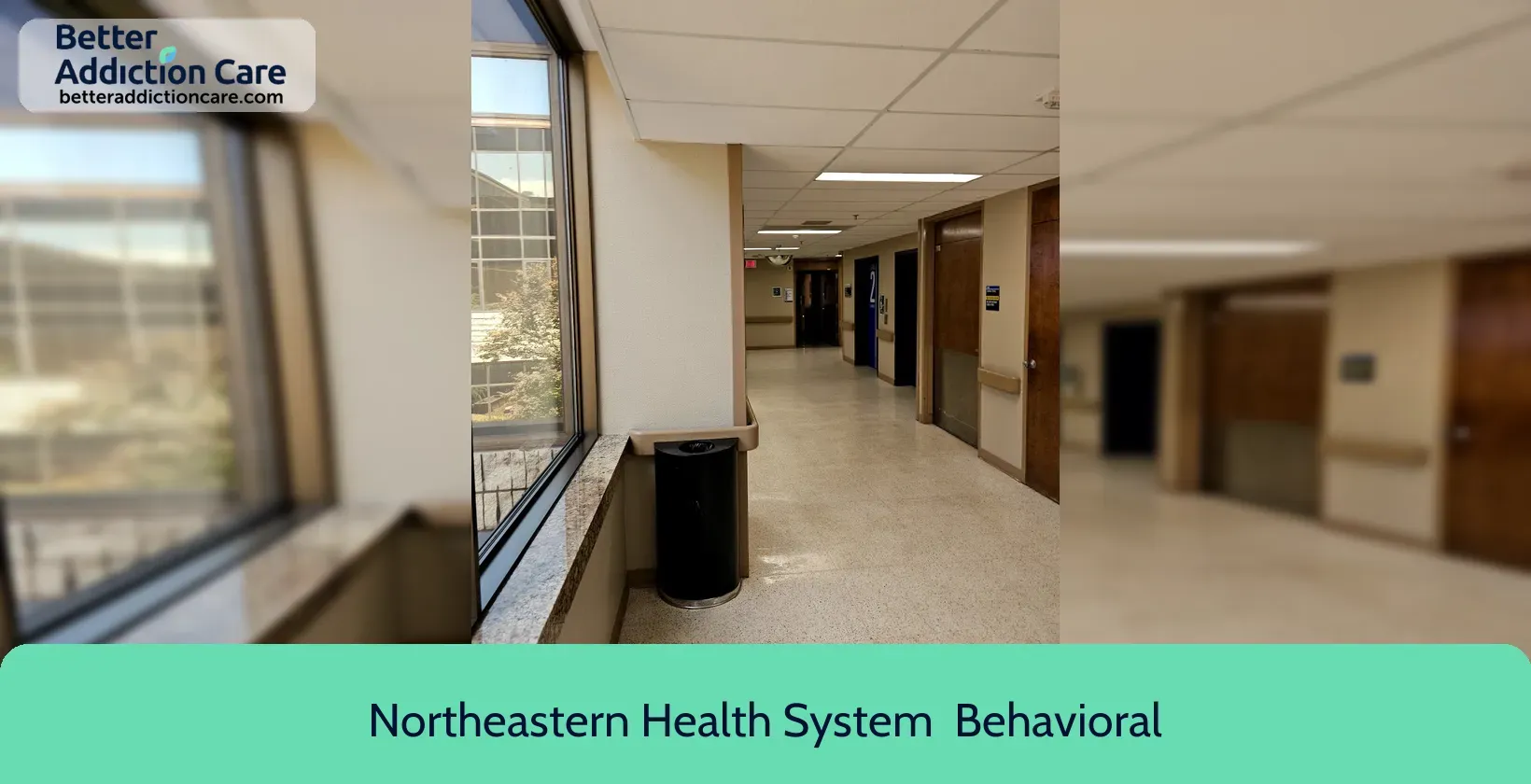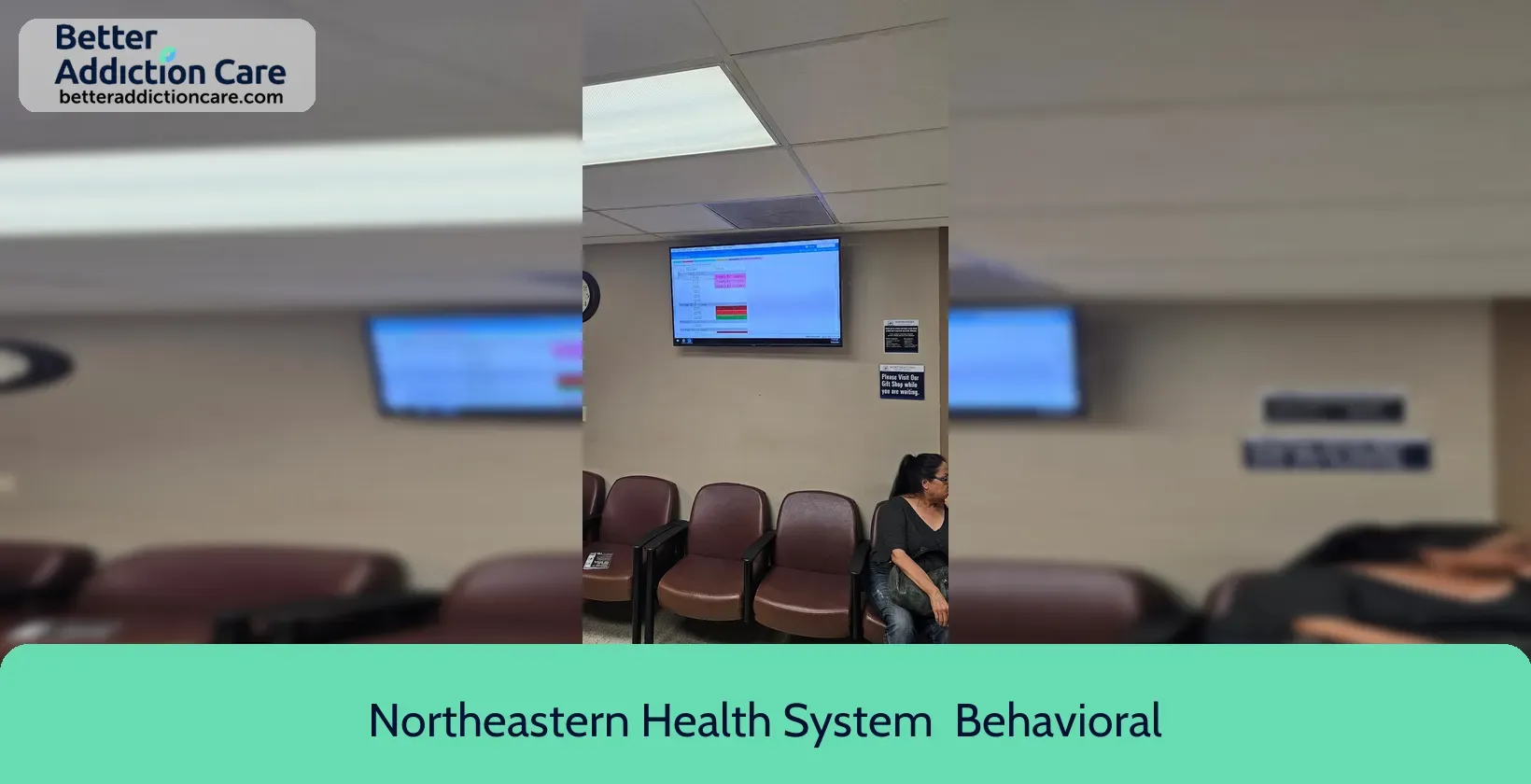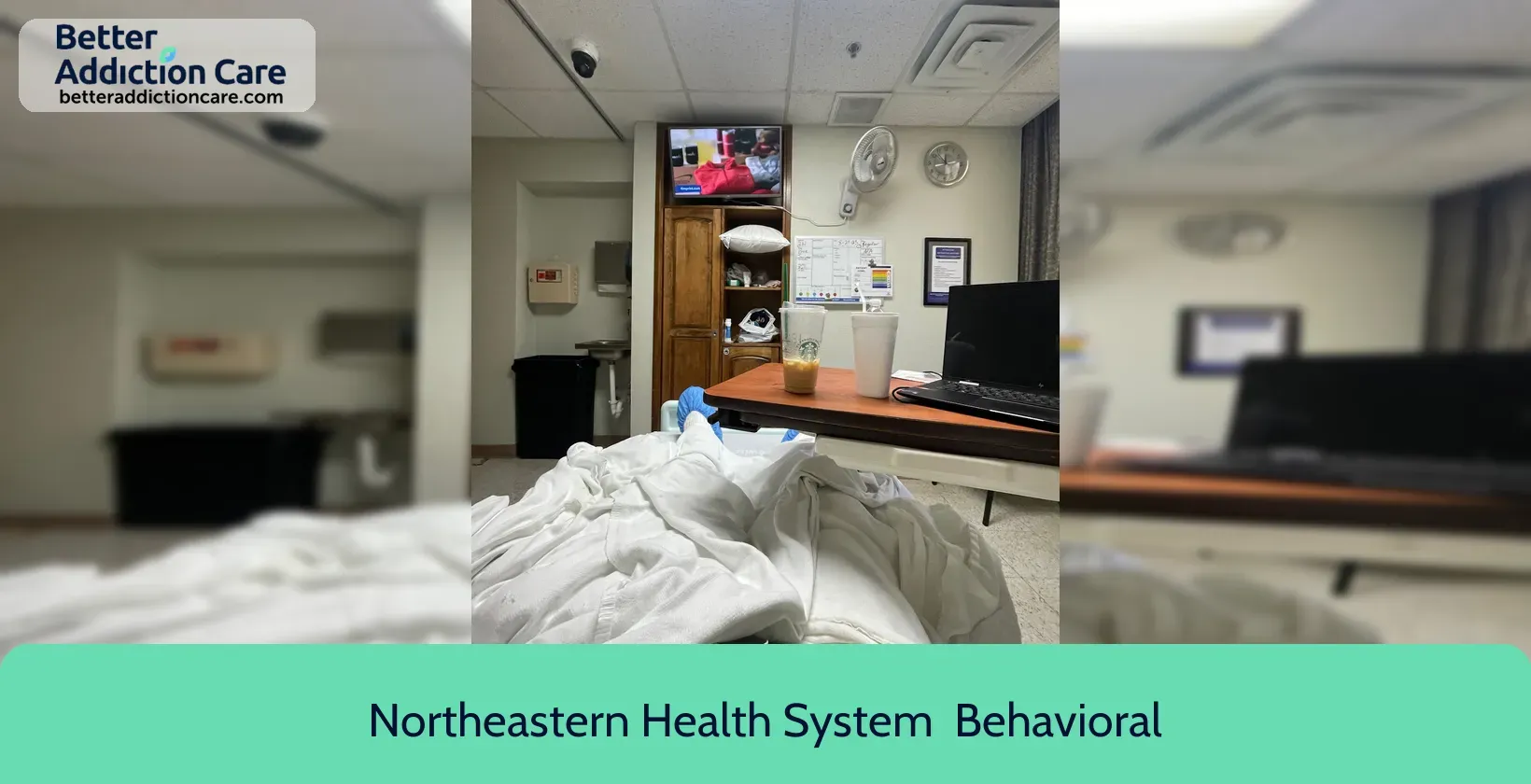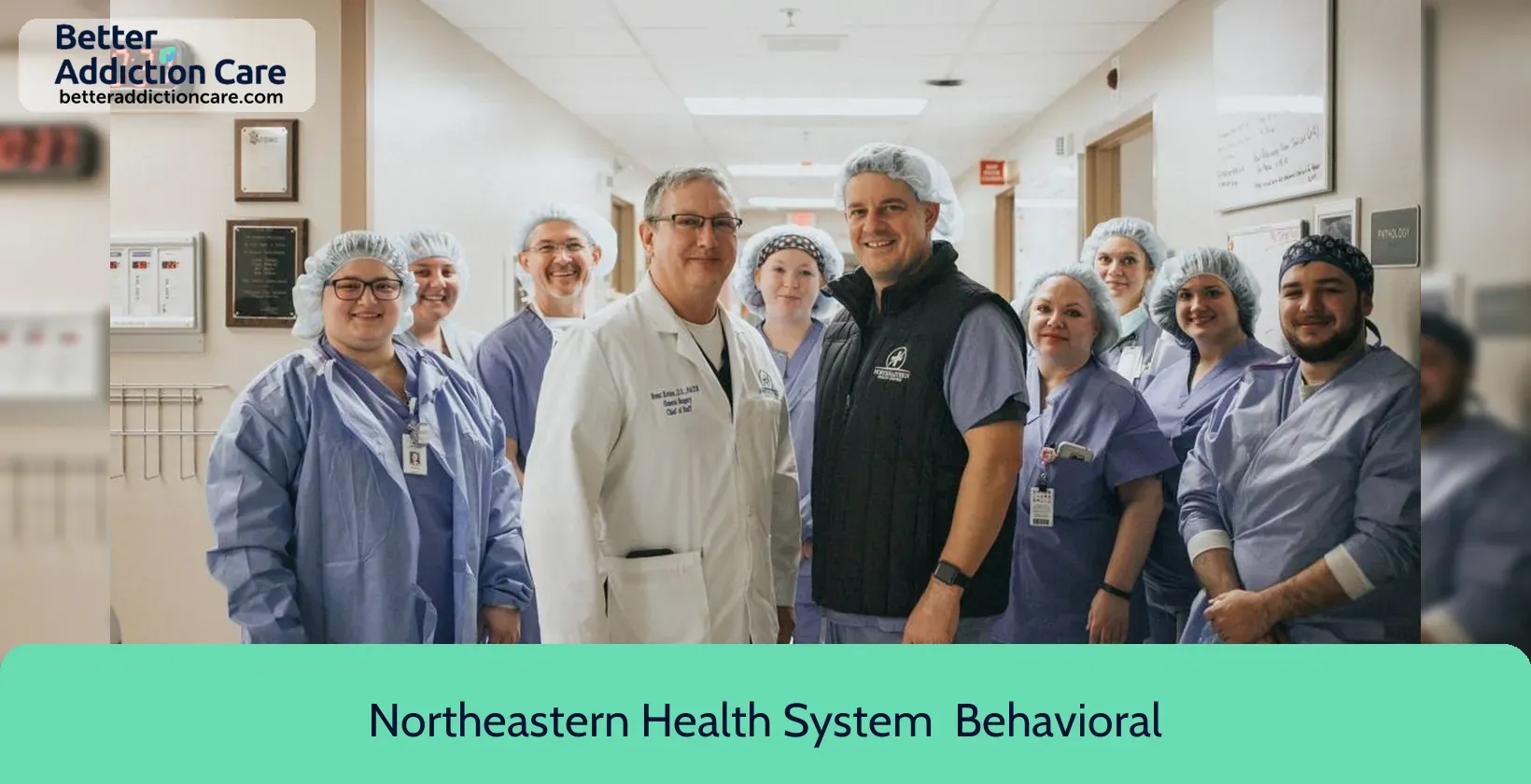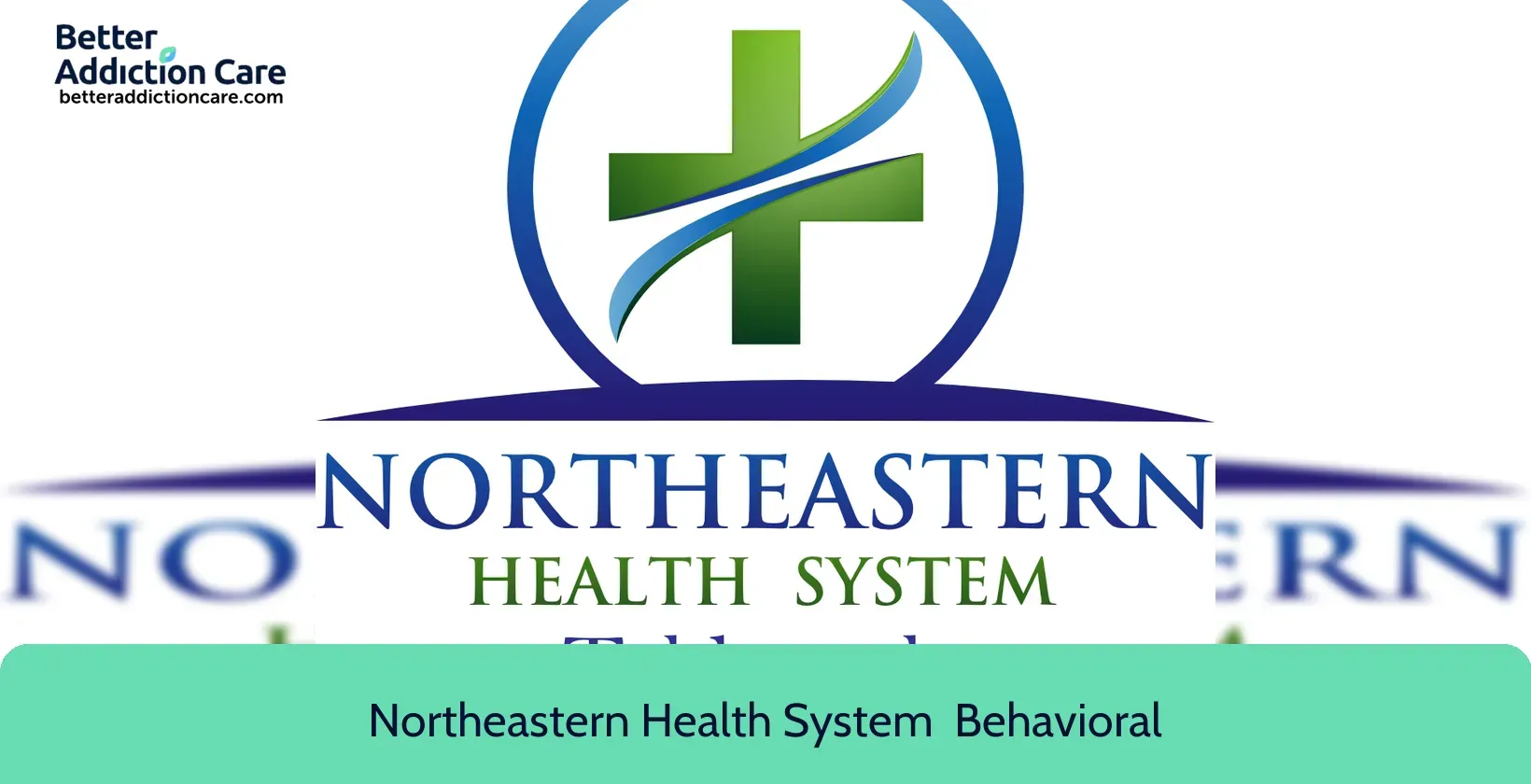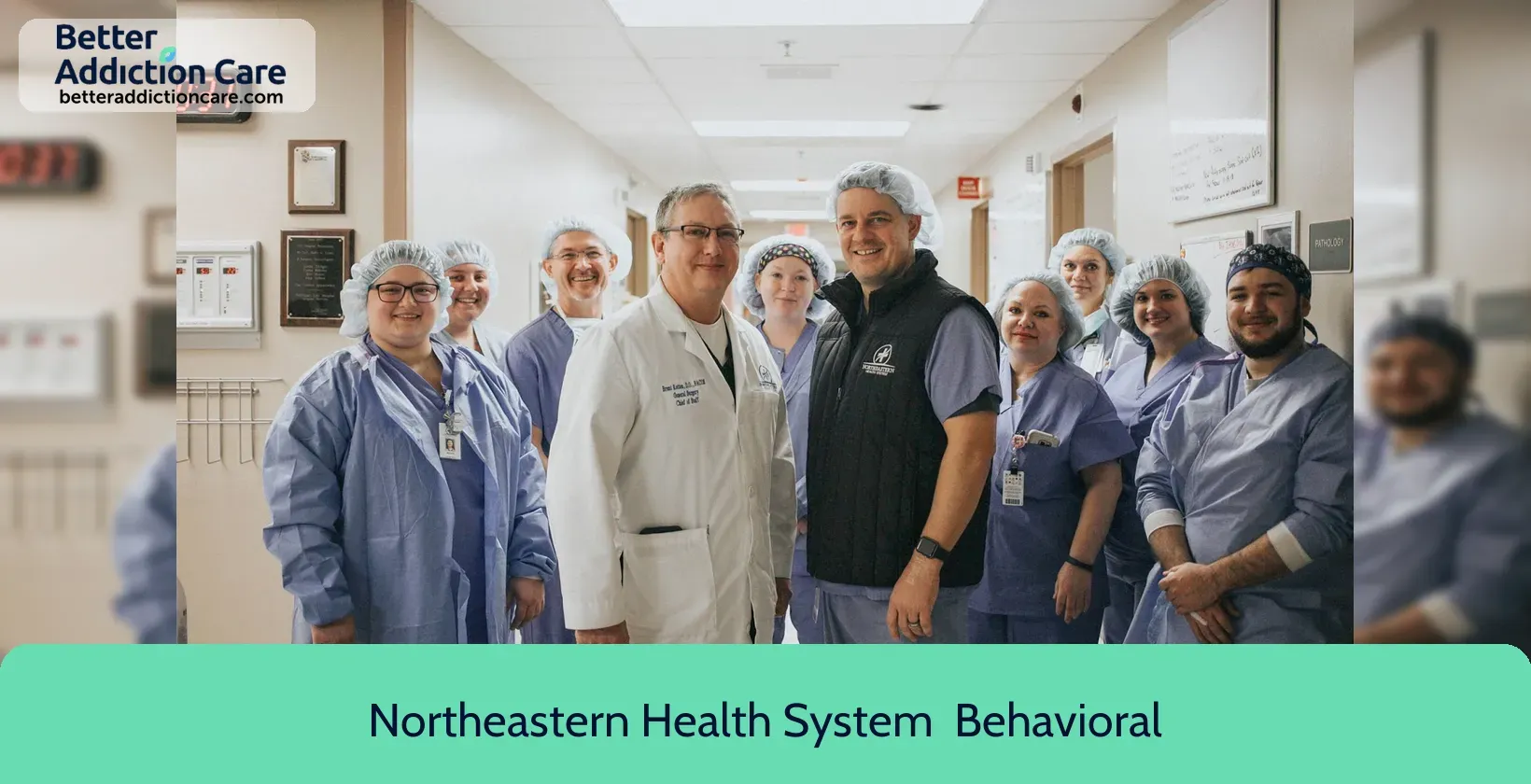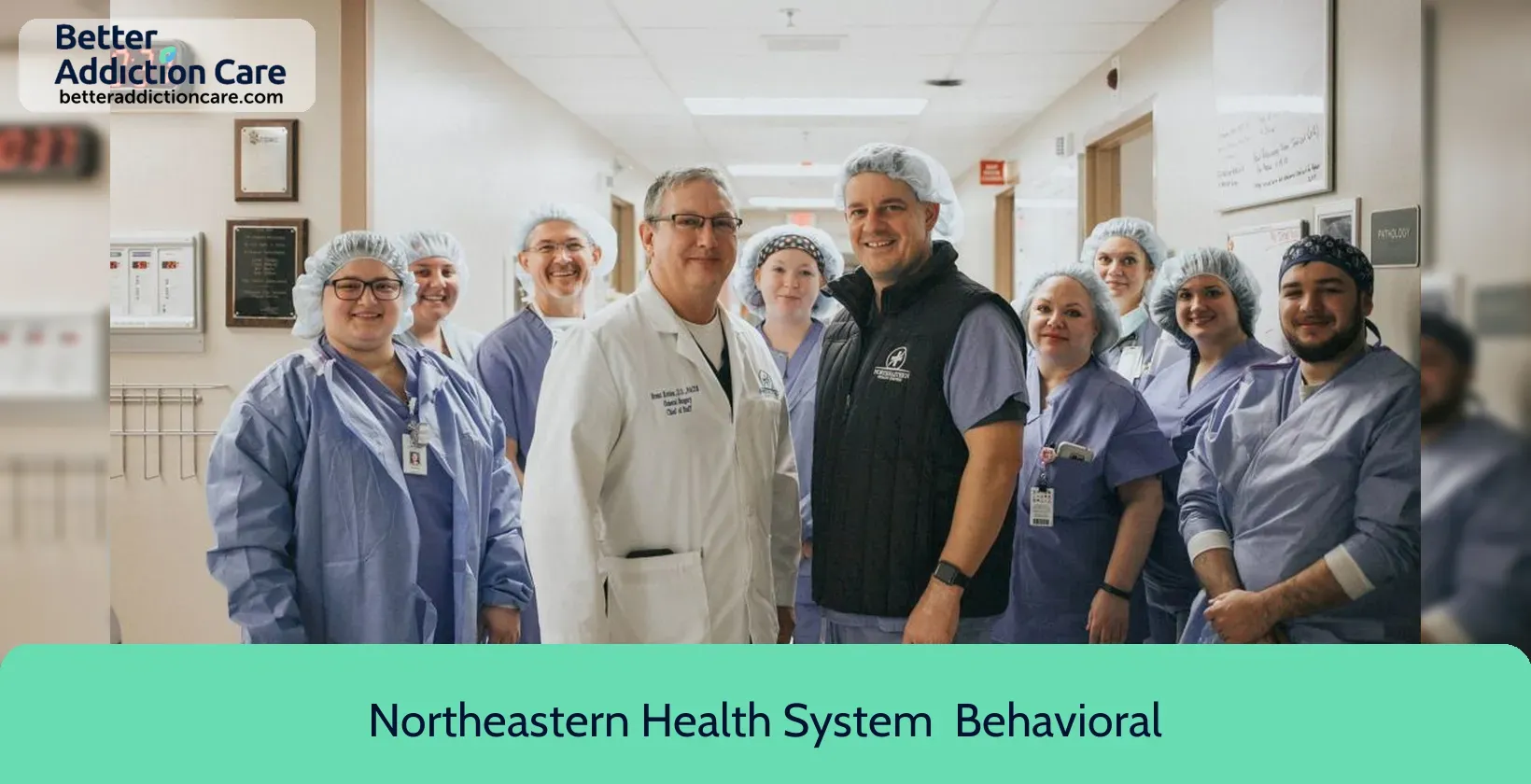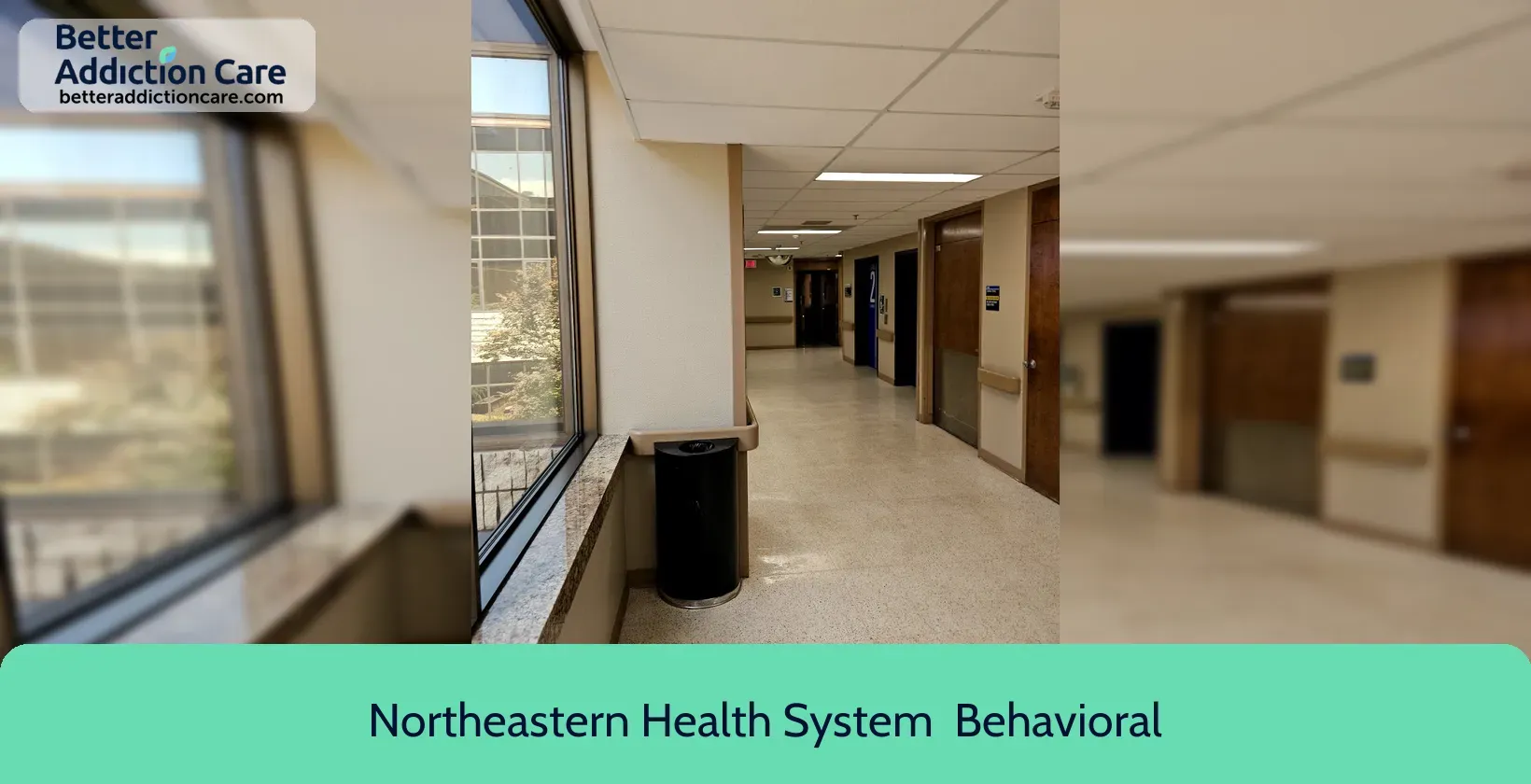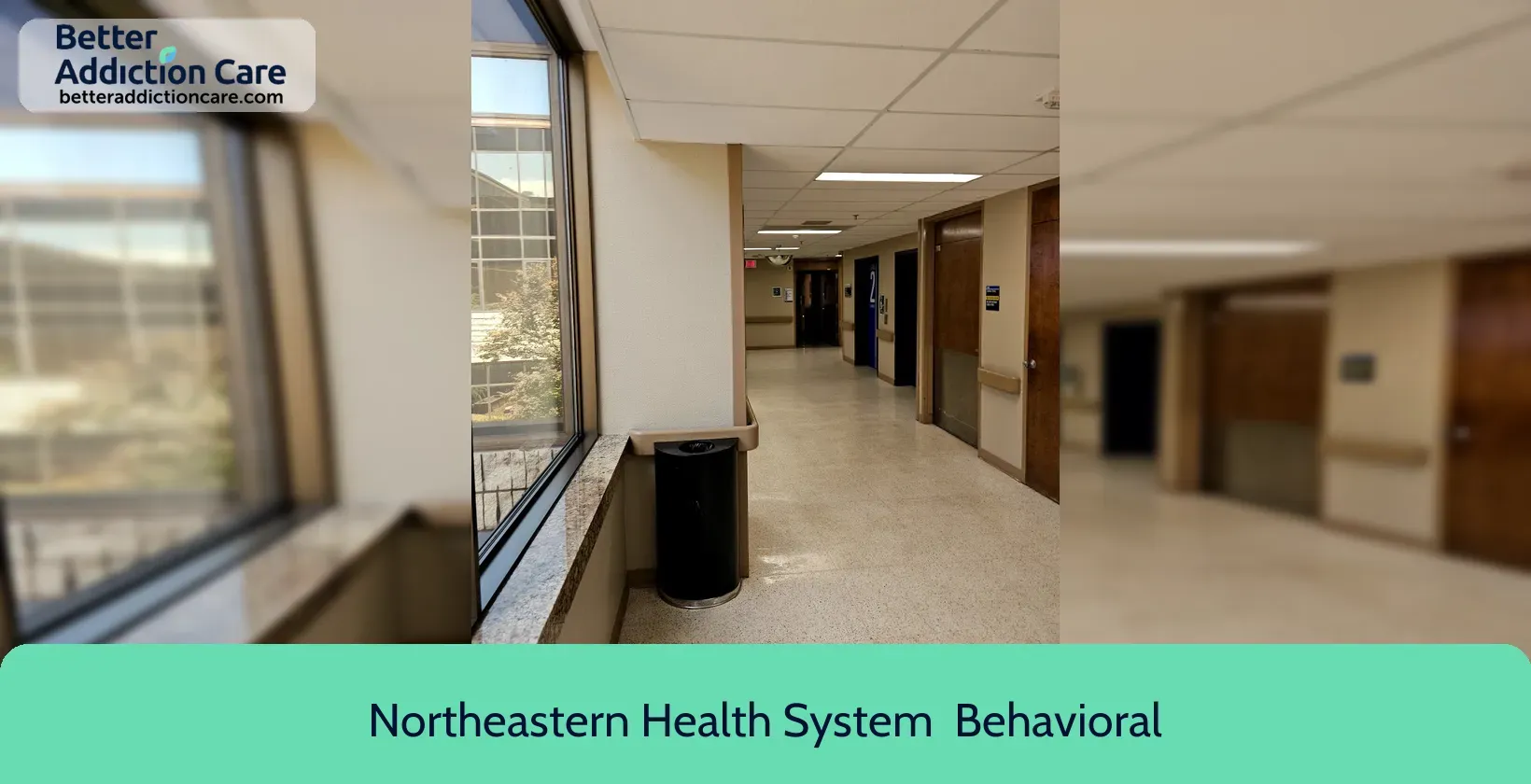Northeastern Health System - Behavioral Health Services
Overview
Northeastern Health System - Behavioral Health Services is a mental health treatment center for people seeking treatment near Cherokee County. As part of their treatment modalities for recovery, Northeastern Health System - Behavioral Health Services provides couples/family therapy, group counseling, and cognitive behavioral therapy during treatment. Northeastern Health System - Behavioral Health Services is located in Tahlequah, Oklahoma, accepting cash or self-payment for treatment.
Northeastern Health System - Behavioral Health Services at a Glance
Payment Options
- Cash or self-payment
- Medicaid
- Medicare
- State-financed health insurance plan other than Medicaid
- Private health insurance
Assessments
- Screening for tobacco use
- Comprehensive mental health assessment
Age Groups
- Seniors or older adults
- Seniors
Ancillary Services
- Case management service
- Chronic disease/illness management
- Court-ordered outpatient treatment
- Education services
- Integrated primary care services
Highlights About Northeastern Health System - Behavioral Health Services
6.71/10
With an overall rating of 6.71/10, this facility has following balanced range of services. Alcohol Rehabilitation: 8.00/10, Drug Rehab and Detox: 6.00/10, Insurance and Payments: 6.00/10, Treatment Options: 6.85/10.-
Alcohol Rehabilitation 8.00
-
Treatment Options 6.85
-
Drug Rehab and Detox 6.00
-
Insurance and Payments 6.00
Treatment At Northeastern Health System - Behavioral Health Services
Treatment Conditions
- Mental health treatment
Care Levels
- Hospital inpatient/24-hour hospital inpatient
Treatment Modalities
- Couples/family therapy
- Group counseling
- Cognitive behavioral therapy
- Dialectical behavior therapy
- Activity therapy
Ancillary Services
Languages
- Sign language services for the deaf and hard of hearing
- Spanish
Additional Services
- Pharmacotherapies administered during treatment
- Metabolic syndrome monitoring
Special Programs
- Veterans
- Persons with Alzheimers or dementia
- Persons with post-traumatic stress disorder (PTSD)
- Persons 18 and older with serious mental illness (SMI)
Get Help Now
Common Questions About Northeastern Health System - Behavioral Health Services
Contact Information
Other Facilities in Tahlequah

7.20
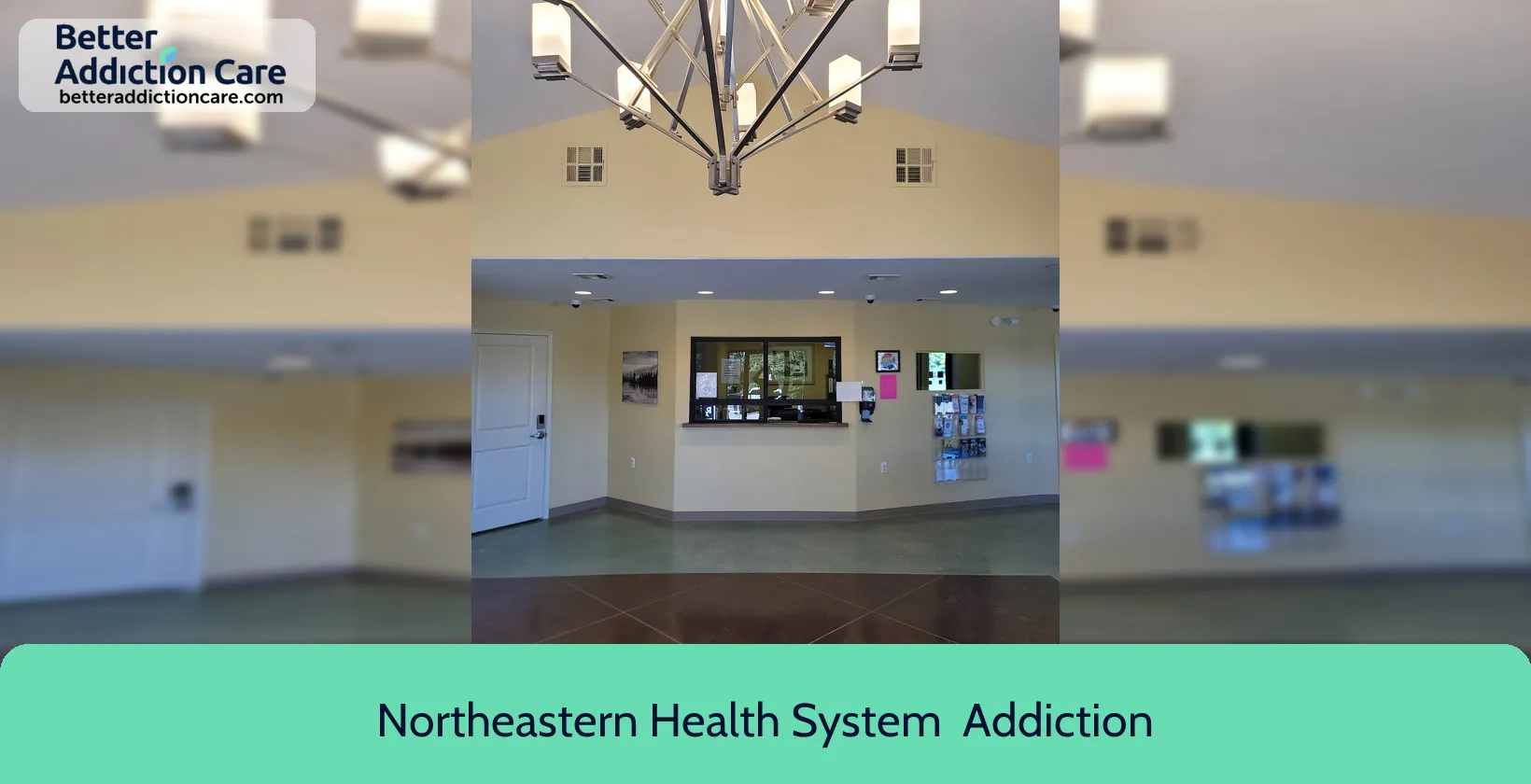
7.80
DISCLAIMER: The facility name, logo and brand are the property and registered trademarks of Northeastern Health System - Addiction Resource Center, and are being used for identification and informational purposes only. Use of these names, logos and brands shall not imply endorsement. BetterAddictionCare.com is not affiliated with or sponsored by Northeastern Health System - Addiction Resource Center.
